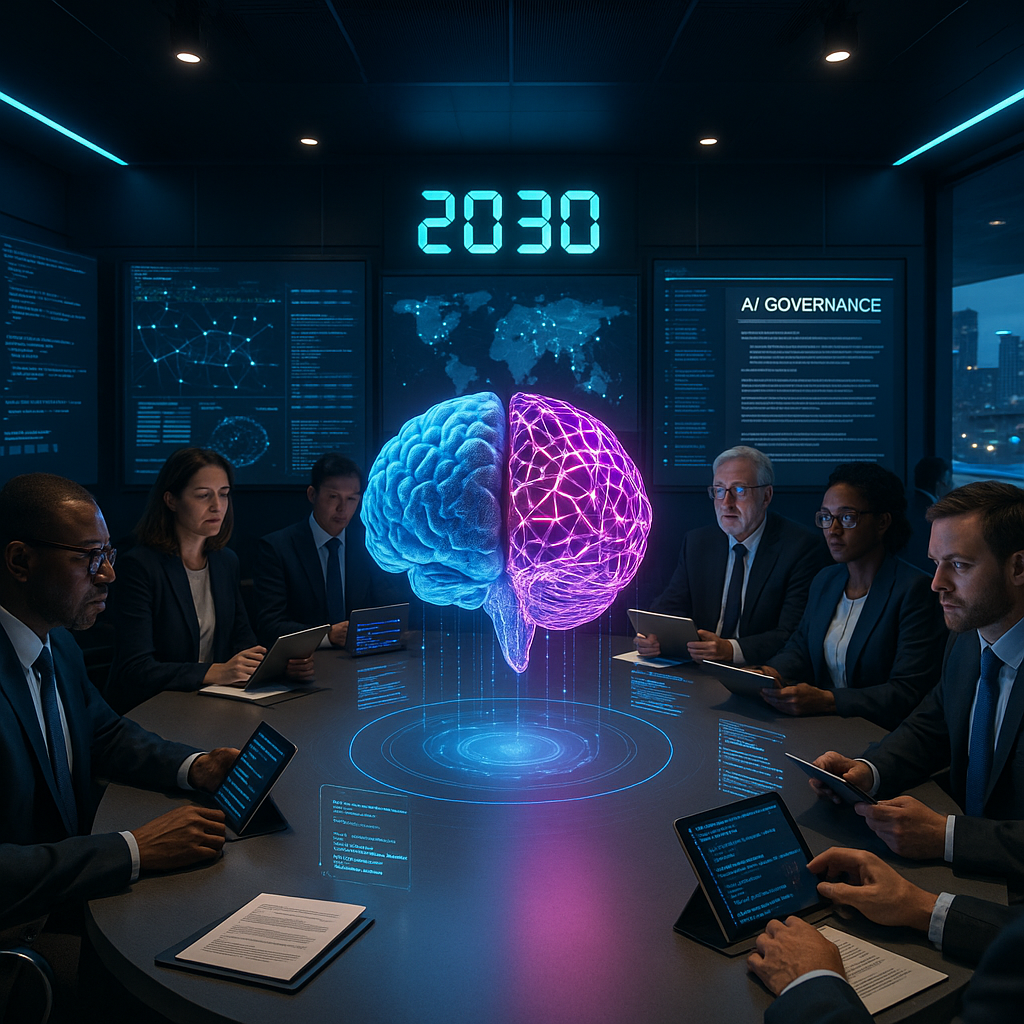Key Takeaways
- On 6 October 2025, the debate over AI developments and governance intensifies as Kai-Fu Lee states AI could surpass the abilities of 90% of people within five years.
- Top story: Kai-Fu Lee projects that AI will eclipse the cognitive skills of most humans by 2030. This is prompting urgent reflection on adaptation, ethics, and societal resilience.
- The UK has unveiled the £11.5 million METIUS initiative to equip policymakers with tools and expertise for ethical AI governance.
- Microsoft’s $33 billion investment in micro-clouds highlights efforts to decentralize AI resources amid mounting supply constraints.
- The EU has published its GPAI Code of Practice signatory list, establishing new directions for regulating cross-border AI applications.
- These developments reflect a world balancing rapid technological progress with the growing need for robust institutional frameworks.
Introduction
On 6 October 2025, as Kai-Fu Lee warns that AI could exceed the abilities of 90% of people within five years, the urgency of navigating AI developments and governance comes into sharp focus. The UK’s launch of its £11.5 million METIUS project underscores a global search for effective frameworks to harness and guide the trajectory of advanced intelligence.
Top Story: AI Cognitive Milestone Prediction
Lee’s Forecast
Kai-Fu Lee, a leading AI researcher and venture capitalist, predicts that artificial intelligence systems will surpass human cognitive abilities in specific domains by 2027. This forecast, shared at the Global AI Summit in Singapore, highlights accelerating progress in large language models and multimodal AI systems.
Technical Foundation
Lee’s assessment is rooted in recent breakthroughs in neural architectures and computational efficiency. The combination of improved training methods, expanded datasets, and new self-learning capabilities has significantly accelerated AI development. This moves beyond earlier projections.
Philosophical Implications
This prediction raises foundational questions about intelligence and consciousness. Philosophers and cognitive scientists are debating whether surpassing human performance indicates true “understanding” or constitutes a fundamentally distinct form of information processing.
Stay Sharp. Stay Ahead.
Join our Telegram Channel for exclusive content, real insights,
engage with us and other members and get access to
insider updates, early news and top insights.
 Join the Channel
Join the Channel
Also Today: AI Governance
Global Framework Progress
The United Nations AI Advisory Board has released draft guidelines for international AI governance that emphasize human rights protection, algorithmic transparency, and shared global standards for AI development.
Representatives from 47 countries have endorsed the preliminary document. This marks a step forward in coordinated AI oversight. The guidelines focus on issues such as autonomous systems, privacy protection, and ethical AI deployment.
Industry Response
Major technology companies have supported the proposed framework, although many have requested further clarification regarding implementation timelines. Google, Microsoft, and OpenAI have committed to begin incorporating the guidelines into their AI development processes starting January 2026.
Also Today: Research Ethics
Stanford Protocol
Stanford University’s AI Ethics Center has introduced a comprehensive protocol for testing advanced AI systems. The approach requires rigorous safety validation before deploying models with broad societal impact.
Support for the protocol is rising globally. Research institutions such as MIT, Oxford, and the Beijing Institute of Technology have announced plans to adopt similar standards by March 2026.
What to Watch: Key Dates and Events
- Global AI Safety Summit in London (15 October 2025): World leaders and technology executives will discuss international AI regulation frameworks.
- UN General Assembly Special Session on AI (22 October 2025): A vote is scheduled on binding AI development guidelines.
- IEEE International Conference on AI Ethics (28 to 30 October 2025): New technical standards for AI safety testing will be presented.
- Q3 earnings reports from major AI companies: Microsoft (16 October 2025), Alphabet (17 October 2025), Meta (23 October 2025).
Conclusion
Kai-Fu Lee’s forecast that AI will surpass most people in cognitive performance highlights not only rapid technological progress but also a profound shift in how intelligence and agency are defined worldwide. As global institutions advance toward harmonizing AI governance and ethical standards, debates over capability and meaning are accelerating. What to watch: major policy summits and industry events in October are set to reveal how AI developments and governance frameworks will converge.





Leave a Reply